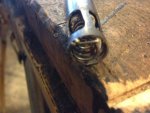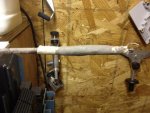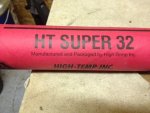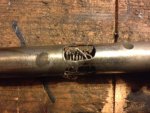jdr2710
Member
- 60
- 1
- 8
- Location
- Colorado Springs, CO
Now that it is getting cold & snowy here in colorado I decided to try to figure out why my arctic heater doesn't heat. I've got a Benmar I got off ebay a while ago. To make life easier I pulled it off the truck so I could work on it on the bench.
Much to my amazement it actually fired up on the first attempt on the bench (it never has worked while in the truck). After I let it run for a while I shut it down, then tried to restart it the next day, and no joy. After some poking around I pulled the igniter. The top metal coil going into the ceramic is not attached at the ceramic end, it must've just had a lucky short for the one time it worked.
Does anybody know where I might find a replacement? Or can you think of an alternative means of igniting?
Thanks,
Jeff
Much to my amazement it actually fired up on the first attempt on the bench (it never has worked while in the truck). After I let it run for a while I shut it down, then tried to restart it the next day, and no joy. After some poking around I pulled the igniter. The top metal coil going into the ceramic is not attached at the ceramic end, it must've just had a lucky short for the one time it worked.
Does anybody know where I might find a replacement? Or can you think of an alternative means of igniting?
Thanks,
Jeff
Attachments
-
15.4 KB Views: 52
-
23.4 KB Views: 52








